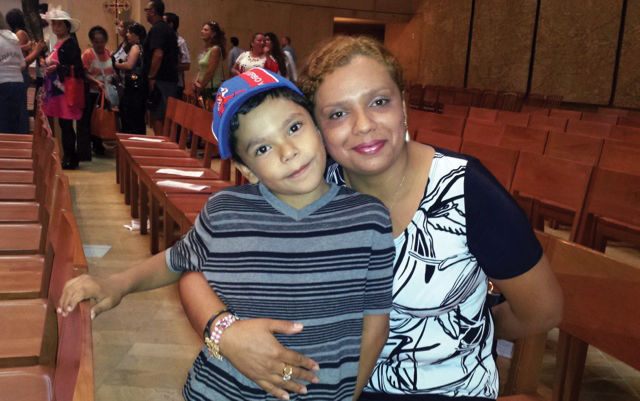Less than a year ago, the U.S. government began Operation Rescue Angel, an effort to curb the number of unaccompanied minors crossing into the United States illegally.
Through the program, U.S. law enforcement train their counterparts in other countries to crack down specifically on the transit of children across borders.
Richard Alan Jones, an expert in Latin American migration with Catholic Relief Services, said the program does nothing to deal with the root causes that push the children north.
During a March 13 session at the Los Angeles Religious Education Congress, Jones told the story of a child who left Honduras trying to get to the United States. The child was under pressure to join a gang.
He was detained by Mexican authorizes en route, deported and left in San Pedro Sula, Honduras, the world’s most violent city. Four days later, with a new pair of shoes and a change of clothes, the boy tried again, but again was detained, deported and left in San Pedro Sula.
According to Jones, who lives in San Salvador, he could not try again because he succumbed to a gang.
“They aren’t looking for the American dream, they’re fleeing the Central American nightmare,” Jones said.
Gangs, poverty and even an improving Mexican economy have contributed to the steep increase in immigration from Central America, Jones said. With the lowest number of Mexican immigrants since the 1970s, human traffickers have targeted Central Americans.
Coyotes, who charge no less than $5,000 for transit to the United States, began stimulating immigration in Central America, even offering two-for-one deals, he said.
“We have created a black market where women and children are objects,” Jones said. “A tomato that leaves Mexico is more cared for than people.”
The tomato has legal paperwork, is protected throughout the transport and finds a welcome at the supermarket, he explained. Jones also noted that unaccompanied children who are caught have more legal options than children who arrive with their parents.
The authorization of the Trafficking Victims Protection Act, a U.S. government effort to combat trafficking, is currently being discussed in Congress. Jones asked participants to call their representatives and ask that they support its authorization.
“You can make a difference,” he said.
A woman from the San Bernardino Diocese described how, after the Church there opened its doors to unaccompanied minors, the chancery was bombarded by angry phone calls — including from Catholics.
“Some said they wouldn’t send their kids to the same school because the immigrant children brought too many bacteria,” she said. “We have a lot of work to do within our own community on this. The bishops who speak out on it are worth their weight in gold.”

